Filter by
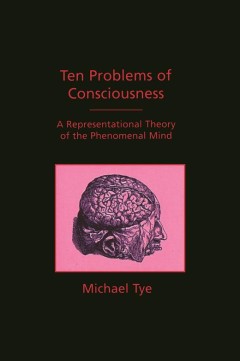
Ten Problems of Consciousness: A Representational Theory of the Phenomenal Mind
A Bradford book."OCLC-licensed vendor bibliographic record.
- Edition
- -
- ISBN/ISSN
- 9780262285322
- Collation
- 1 online resource (xvi, 248 pages) :illustrations.
- Series Title
- -
- Call Number
- -
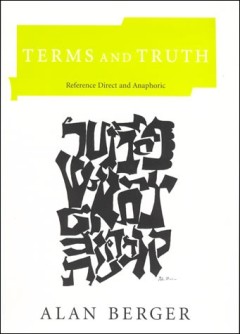
Terms and Truth: Reference Direct and Anaphoric
A Bradford book."In this book, Alan Berger further develops the new theory of reference -- as formulated by Kripke and Putnam -- applying it in novel ways to many philosophical problems concerning reference and existence. Berger argues that his notion of anaphoric background condition and anaphoric links within a linguistic community are crucial not only to a theory of reference, but to the ana…
- Edition
- -
- ISBN/ISSN
- 9780262268219
- Collation
- 1 online resource (xvii, 234 pages).
- Series Title
- -
- Call Number
- -

The Letters of George Santayana, Book Two, 1910–1920: The Works of George S…
The second of eight books of the correspondence of George Santayana.Since the first selection of George Santayana's letters was published in 1955, shortly after his death, many more letters have been located. The Works of George Santayana, Volume V, brings together a total of more than 3,000 letters. The volume is divided chronologically into eight books of roughly comparable length. Book Two c…
- Edition
- 1
- ISBN/ISSN
- 9780262283007
- Collation
- -
- Series Title
- -
- Call Number
- -
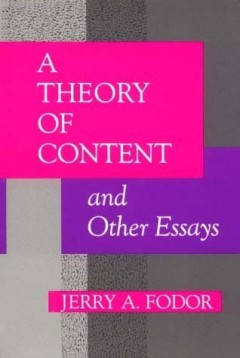
A Theory of Content and Other Essays
A Bradford book."OCLC-licensed vendor bibliographic record.
- Edition
- -
- ISBN/ISSN
- 9780262287999
- Collation
- 1 online resource (xii, 270 pages)
- Series Title
- -
- Call Number
- -
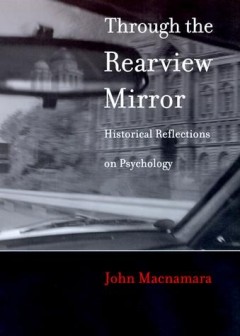
Through the Rearview Mirror: Historical Reflections on Psychology
A Bradford book."OCLC-licensed vendor bibliographic record.
- Edition
- -
- ISBN/ISSN
- 9780262278850
- Collation
- 1 online resource (xix, 291 pages) :illustrations
- Series Title
- -
- Call Number
- -
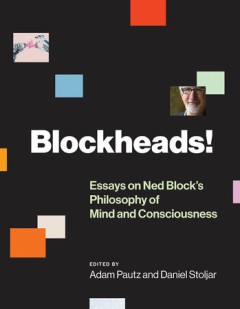
Blockheads! :essays on Ned Block's philosophy of mind and consciousness
New essays on the philosophy of Ned Block, with substantive and wide-ranging responses by Block. Perhaps more than any other philosopher of mind, Ned Block synthesizes philosophical and scientific approaches to the mind; he is unique in moving back and forth across this divide, doing so with creativity and intensity. Over the course of his career, Block has made groundbreaking contributions to …
- Edition
- -
- ISBN/ISSN
- 9780262348973
- Collation
- 1 online resource (vii, 634 pages).
- Series Title
- -
- Call Number
- -
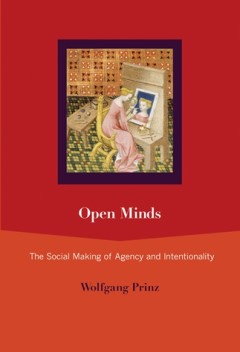
Open minds :the social making of agency and intentionality
A novel proposal that the cognitive architecture for volition and cognition arises from particular kinds of social interaction and communication.In Open Minds, Wolfgang Prinz offers the novel claim that agency and intentionality are first perceived and understood in others, and that it is only through practices and discourses of social mirroring that individuals come to apply these features to …
- Edition
- -
- ISBN/ISSN
- 9780262301695
- Collation
- 1 online resource (xvi, 341 pages)
- Series Title
- -
- Call Number
- -

Against nature
A pithy work of philosophical anthropology that explores why humans find moral orders in natural orders. Why have human beings, in many different cultures and epochs, looked to nature as a source of norms for human behavior From ancient India and ancient Greece, medieval France and Enlightenment America, up to the latest controversies over gay marriage and cloning, natural orders have been enli…
- Edition
- -
- ISBN/ISSN
- 9780262353809
- Collation
- 1 online resource (96 pages) :illustrations.
- Series Title
- -
- Call Number
- -
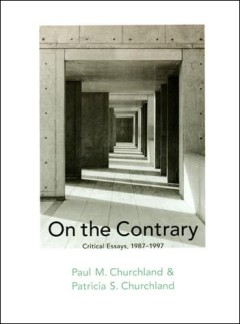
On the contrary :critical essays, 1987-1997
Paul and Patricia Churchland take on their critics—with verve, combativeness, and generosity. Paul M. and Patricia S. Churchland are towering figures in the fields of philosophy, neuroscience, and consciousness. This collection was prepared in the belief that the most useful and revealing of anyone's writings are often those shorter essays penned in conflict with or criticism of one's prof…
- Edition
- -
- ISBN/ISSN
- 0585021848
- Collation
- 1 online resource (xii, 349 pages) :illustrations.
- Series Title
- -
- Call Number
- -
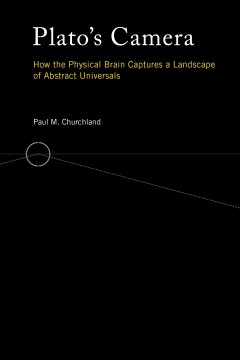
Plato's camera :how the physical brain captures a landscape of abstract unive…
A noted philosopher draws on the empirical results and conceptual resources of cognitive neuroscience to address questions about the nature of knowledge. In Plato's Camera, eminent philosopher Paul Churchland offers a novel account of how the brain constructs a representation--or "takes a picture"--of the universe's timeless categorical and dynamical structure. This construction process, which …
- Edition
- -
- ISBN/ISSN
- 9780262302869
- Collation
- 1 online resource (x, 289 pages, 12 unnumbered pages of plates) :illustrations (some color)
- Series Title
- -
- Call Number
- -
 Computer Science, Information & General Works
Computer Science, Information & General Works  Philosophy & Psychology
Philosophy & Psychology  Religion
Religion  Social Sciences
Social Sciences  Language
Language  Pure Science
Pure Science  Applied Sciences
Applied Sciences  Art & Recreation
Art & Recreation  Literature
Literature  History & Geography
History & Geography